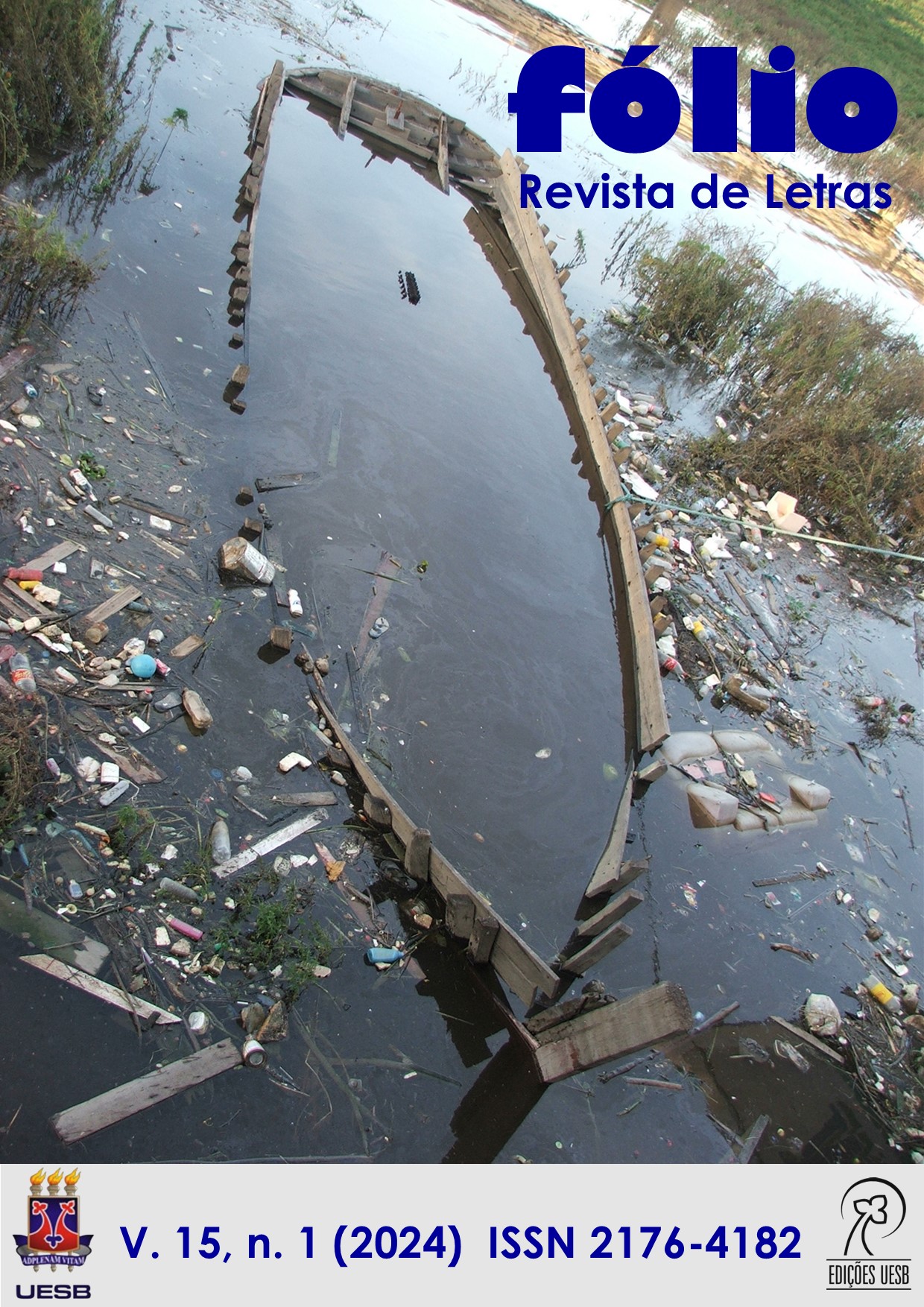Queerifying nature: between Frankenstein and Frankisstein
DOI:
https://doi.org/10.22481/folio.v15i1.11733Keywords:
Nature, Queer Ecology, Modernity, Climate Crisis, Ecological AwarenessAbstract
This essay is a thought experiment or exercise that seeks in Mary Shelley's novel – Frankenstein – the foundations of an ecological awareness that destabilizes the concept of nature. Such destabilization will be read/interpreted alongside discussions on queer ecology that call into question the normative character of the so-called nature. In Frankisstein, a contemporary interpretation of Mary Shelley's novel, the writer Jeanette Winterson addresses key issues of the nineteenth-century novel and highlights the binaries that inform Western scientific thought, especially with regard to the apparent natural/anti-natural opposition. The abandonment of the novels here will be read from the perspective of climatic shocks/ abnormalities and theories that destabilize the invisible lines that establish the boundaries between humans and non-humans, by understanding that such limits are always based on positions of power.
Downloads
References
BLOOM, Harold (ed.). Bloom’s Modern Critical Interpretations: Frankenstein. New York: Chelsea House, 2007.
FRIEDMAN, Lester & KAVEY, Allison. Monstrous Progeny: A History of the Frankenstein Narratives. New Jersey: Rutgers University Press, 2016.
GAARD, Greta. Rumo ao Ecofeminismo queer. In: Estudos Feministas, Florianópolis, 19(1): 312, janeiro-abril/2011.
GHOSH, Amitav. The Great Derangement: climate change and the unthinkable. Chicago: The University of Chicago Press, 2016.
MORTON, Timothy. Being Ecological. Cambridge: The MIT Press, 2018.
_____. Hyperobjects: Philosophy and Ecology after the end of the world. Minneapolis: University of Minnesota Press, 2013.
_____. Queer Ecology. The Modern Language Association of America (PMLA), 2010.
_____. Frankenstein and Ecocriticism. In: Cambridge Companion to Frankenstein. Cambridge: Cambridge University Press, 2016.
MONTIMER-SANDILANDS, Catriona. Paixões desnaturadas: notas para uma ecologia queer. In: Estudos Feministas, Florianópolis, 19(1): 312, janeiro-abril/2011.
MONTIMER-SANDILANDS, Catriona; ERICKSON, Bruce. Queer Ecologies: sex, nature, politics and desire. Indiana University Press. 2010.
TROPP, Martin. “The Monster”. In: BLOOM, Harold (ed.). Bloom’s Modern Critical Interpretations: Frankenstein. New York: Chelsea House, 2007.
SHELLEY, Mary. Frankenstein or The Modern Prometeus. Project Gutenberg. March 13, 2013.
STEIN, Rachel. The Place, Promised, That Has Not Yet Been”: The Nature of Dislocation and Desire in Adrienne Rich’s Your Native Land/Your Life and Minnie Bruce Pratt’s Crime against Nature. In: MONTIMER-SANDILANDS, Catriona; ERICKSON, Bruce. Queer Ecologies: sex, nature, politics and desire. Indiana University Press. 2010.
WINTERSON, Jeanetter. Frankisstein: a love story. New York: Grove Atlantic, 2019.
Downloads
Published
How to Cite
Issue
Section
License
Copyright (c) 2024 Fólio - Revista de Letras

This work is licensed under a Creative Commons Attribution 4.0 International License.







